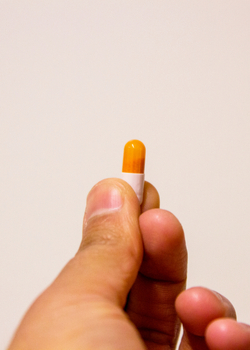Adderall Abuse: Effects, Addiction, Withdrawal Symptoms
 John just needed a little extra energy to get his schoolwork done. He had a term paper due in four days and three finals to study for this weekend. He didn’t know how he would get it all done.
John just needed a little extra energy to get his schoolwork done. He had a term paper due in four days and three finals to study for this weekend. He didn’t know how he would get it all done.
Unless he didn’t sleep.
He’d heard of other students using Adderall to perform better on tests. He wondered if it could work for him. He decided to find out.
But John’s experimentation quickly turned into Adderall abuse.
Toll-free
800-671-4304
Call Now
Adderall 101
 Here are three things you should know about this stimulant medication:
Here are three things you should know about this stimulant medication:
- Adderall is a combination of amphetamine and dextroamphetamine (central nervous system stimulants).
- It’s a prescription medication, available in pill form and often used to treat attention deficit hyperactivity disorder (ADHD).
- The pills should be taken orally. When abused, however, users often crush the pills and snort the powder or melt it down to inject it.
John took several “boosts” of Adderall over the next few days to help him finish out the semester. Because the drug is a stimulant, it caused John’s brain to release extra dopamine and norepinephrine (to stimulate the body).
Dopamine is the brain’s “happy” chemical – it makes you feel good. Norepinephrine helps prepare your body for fight or flight, in response to a threat – making it more active or alert.
Since the drug may help improve focus, it is often prescribed for children with ADHD. But like John, many college students turn to illegal use of this drug in an effort to improve their academic performance.
There’s no research to support that prescription stimulants improve academic performance. In fact, studies show that stimulant misuse can actually impair memory and cognitive performance.
John did get an energy boost, but it came with a price…
Side Effects of Adderall
- Mood swings
- Constipation
- Loss of appetite
- Skin rash/blemishes
- Sex drive changes
- Anxiety, paranoia, aggression
- Chest pains, seizures
- Nausea, vomiting, diarrhea
Drug Interactions
Adderall can interact with many other medications and over-the-counter drugs, including:
- Alkalinizing agents, which include sodium bicarbonate (baking soda)
- Tricyclic antidepressants
- Serotonin medications, such as selective serotonin reuptake inhibitors (SSRIs)
- Monoamine oxidase inhibitors (MAOIs)
- Antihistamines
- Blood pressure medications
- Chlorpromazine (a medication used to treat schizophrenia)
Additionally, Adderall does not play well when combined with alcohol and marijuana. A lot of people think the stimulant effects of Adderall cancel out the depressant effects of alcohol or marijuana. But in reality, Adderall can dangerously intensify their depressant effects.
Adderall makes it difficult to feel the effects of alcohol. This can cause someone to drink much more than they normally would. And that higher alcohol intake can quickly lead to alcohol poisoning.
Mixing Adderall and marijuana can also pose a number of dangers. People often experience a significant increase in nausea, vomiting, diarrhea, numbness, and mental health issues.
And for those who struggle with certain mental health conditions, like schizophrenia, combining Adderall and marijuana can trigger severe hallucinations, paranoia, and delusions.
Signs of Adderall Overdose
The overdose rate for psychostimulant medications, like Adderall, is significantly rising. When a person takes more Adderall than their body can handle at one time, they may overdose.
Signs and symptoms of Adderall overdose include:
- hyperactivity
- hallucinations
- agitation
- muscle pains
- abdominal cramping
- rapid breathing
- increased body temperature
- tremors, seizures, or convulsions
- loss of consciousness
After John started using Adderall, he couldn’t sleep even when he wanted to. He started feeling anxious and moody. His mouth felt dry. He was often nauseous.
He was also getting frequent headaches and stomachaches.
But he figured he had Adderall to help him do it all. But, as the new semester started, he hit the ground running. He had a full load of classes, plus a part-time job and a leading role in the spring theater production. It was a lot.
Developing Tolerance from Adderall Abuse
As John continued to abuse the drug, he developed a tolerance for the substance. This means he had to use more and more to achieve the same effects.
The overstimulation was taking its toll on his body. His digestive system was in a constant uproar. He was getting chest pains. He felt hot all the time. And his leg would sometimes shake uncontrollably.
Plus, there were other issues. John had become dependent on the drug, both physically and mentally. He was eating through his savings to pay for the drugs.
He had to drop out of the play because he missed too many rehearsals due to feeling sick. And all the lying he was doing about his drug use was making life even more stressful.
Then, it happened. One day, he put more in his body than it could handle. On top of the Adderall, he had a few beers. He overdosed. Fortunately, his roommate called 911.
John ended up in the hospital.
He was treated for the overdose. And he was given information about addiction and how to get treatment. John realized he needed to make some changes.
He accepted the help.
Adderall Withdrawal Symptoms
When someone takes or misuses Adderall for a long time, they might experience one or more of the following symptoms:
- Depression, irritability, or other changes in mood
- Insomnia
- Unusual tiredness (fatigue)
- Nausea, vomiting
- Severe stomachaches or cramps
- Sometimes, symptoms of stimulant withdrawal can make you seem hungover or drunk (intoxicated)
John’s Adderall abuse had caused his body to start relying on the drug to feel “normal.” When he stopped using it, he experienced withdrawal symptoms. He felt depressed, achy, and sick to his stomach.
Since John was in a treatment setting, he was able to receive medical assistance to help with these symptoms.
Toll-free
800-671-4304
Call Now
Adderall Abuse Addiction Treatment
 John’s experimentation with Adderall led to a substance use disorder. He became addicted to the drug. It nearly took his life.
John’s experimentation with Adderall led to a substance use disorder. He became addicted to the drug. It nearly took his life.
But his overdose led him to treatment, where he got help for his addiction. After he finished the detox period, he continued with other therapies to deal with his addiction to Adderall.
He also learned how to handle stress without Adderall abuse. The treatment helped John overcome his addiction and start on a new path.
If you or loved one is struggling with an Adderall addiction, help is available now at 800-996-6135 .

